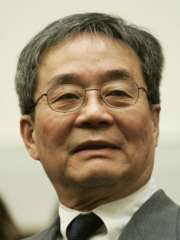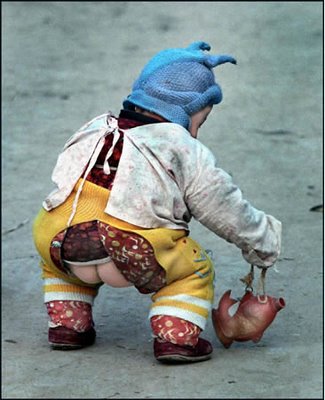 Harry Wu, Laogai survivor and LRF founder, testified for The Tom Lantos Human Rights Commission of the United States House of Representatives regarding the state of Internet freedom in China. His statement is below:
Harry Wu, Laogai survivor and LRF founder, testified for The Tom Lantos Human Rights Commission of the United States House of Representatives regarding the state of Internet freedom in China. His statement is below:
I want to thank Co-Chairman Wolf and Co-Chairman McGovern for inviting me to speak before the Commission today and for the Commission’s ongoing attention to the human rights situation in China.
Over the past several weeks, the Chinese government has caused quite an uproar among its 300 million or so Internet users, the most of any country in the world, after the Ministry of Industry and Information Technology announced its decision requiring that all computers sold within the country from July 1st onward be preinstalled with the Green Dam Youth Escort (‘Green Dam’). Developed by Jinhui Computer System Engineering Co., Green Dam is software that uses blacklists and image processing technology to filter out “harmful” words, images, and website addresses.
Jinhui claims that the software is only intended to block pornographic content, but the government has demonstrated as recently as 2008, with what was purported to be a nationwide crackdown on pornographic websites, that its interpretation of “harmful” includes information on human rights topics and commentary that is critical of the Chinese Communist Party. Indeed, the Green Dam software includes filtering options to block religious, political, and other socially sensitive content. To my knowledge, this government mandate represents the most intrusive attempt by any government in the world to systematically censor the Internet on such a large scale.
The Green Dam directive is unprecedented in the extent of control that it aims to achieve over the Internet and its users. Testing of Green Dam has shown that it can not only block access to banned websites, it can also shut down word processing, email, and other programs running on the computer when proscribed language is input into the applications. And just like anti-virus software, the Green Dam software can be updated remotely by Jinhui’s company servers so as to expand the scope of banned content, without notification to its users. More disturbing yet, testing of Green Dam has shown that Jinhui could easily use this remote update capability to alter the software in a way that would allow the company (and, by extension, the government) to monitor the personal communications and Internet browsing behavior of users, turning it into a tool of not only censorship but one of surveillance as well.
China has already developed the most advanced police state in the world, and if implemented as planned, Green Dam would significantly supplement its capabilities. The software would add a new layer of censorship, operating at the level of individual computers, on top of the network-level censorship that already exists, which is commonly referred to as the ‘Great Firewall of China.’ The Great Firewall was developed in the late 1990’s, shortly after the Internet came to China, and was built to a large degree with technology supplied by Western companies such as Cisco Systems, which sold the Chinese government the routers and switches necessary to build the highly sophisticated system. Cisco would later involve itself in the Chinese regime’s ambitious “Golden Shield” project, which aims to develop a national surveillance system and database of citizen records that would be readily accessible by state and public security organs at the national, provincial, and municipal levels. Cisco actively courted and signed contracts with Chinese public security agencies to develop some of these technologies.
A number of other US technology companies have also marketed hi-tech surveillance products to the security organs in China, including facial and voice recognition software that could be very useful for identifying and detaining dissidents. Such sales certainly seem to violate the spirit, if not the letter, of the Tiananmen sanctions prohibiting the export of crime control or detection instruments or equipment to China, which were enacted through the Foreign Relations Authorization Act for the 1990-1991 fiscal year. Last year I called upon the Department of Commerce’s Bureau of Industry and Security to update the Commerce Control List to include these kinds of hi-tech surveillance products as dual use technologies, and to take into consideration their end user—the repressive Communist regime. To date, I am unaware of any changes having been made.
The Chinese government has procured the assistance of US companies in restricting online freedom in other ways as well. Companies such as Yahoo!, Google, and Microsoft that have operated search engines inside of China have been complicit (though to varying degrees) in filtering search results for sensitive content at the direction of the Chinese government. Notably, several years ago Yahoo! even went so far as to turn over user information for several individuals inside China who used its services to publicize or transmit information critical of the government, the most well known of which is the journalist Shi Tao, that contributed to their being arrested and sentenced to lengthy terms in prison. Yahoo!, which no longer operates inside China but owns a large share of the Chinese search engine Alibaba.com, has since apologized to the families of those individuals and offered them financial compensation. It also partnered with Google, Microsoft and others to create the Global Network Initiative, which aims to develop a shared approach for companies and other stakeholders to advance the freedom of expression and privacy in markets such as China. But it is still unclear how other Internet companies operating in China, including those that have signed onto the GNI, would respond to future requests for user information made by Chinese authorities. That is why I have consistently advocated for the US Congress to pass the Global Online Freedom Act, sponsored by Representative Chris Smith, which would prohibit US companies from complying with such requests, except under limited circumstances.
Fortunately, the rollout of the Green Dam software does not appear to be proceeding as smoothly as the Chinese government had probably hoped it would. In addition to the backlash from its own citizens, including a lawyer who is mounting a legal challenge against the policy, researchers at the University of Michigan and elsewhere have identified major security flaws in the software. It seems that installing Green Dam on a computer makes it highly vulnerable to hackers, who could potentially steal private data or take control of the computer itself. The software is also said to significantly impair the performance of the machine running it. The government has ordered Jinhui to fix these errors, but it is unlikely that they will be able to fully correct the software by the July 1 deadline. Already, there are reports that the Chinese government may be backtracking, with one government official quoted as saying that the Green Dam software does not have to be preinstalled on computers, but can be included in an accompanying disc instead.
In many ways, the Internet has become the new battlefront for freedom and democracy in China. Sadly, I fear it is a war that the Chinese government is slowly winning. It has invested immense resources into “cleaning up” the Internet—acquiring and installing the most advanced firewall technology, employing an estimated 30,000-50,000 Internet police to monitor the web, shutting down domestic blogs and websites, and threatening to take away business licenses from service providers that don’t censor content on their own. Moreover, the more the Chinese public becomes aware that the government is monitoring them, the greater is their tendency toward self-censorship. As for the Green Dam endeavor, even if it is not completely successful, the government will have already laid much of the groundwork to replace it with a superior system at some point in the future.
However, while Chinese technology firms have come a long way since the Great Firewall was first constructed, it seems the government still requires the assistance or complicity of US businesses to make it work. It is telling that the one software package the Chinese government selected to be installed on every new computer in the country, and for which it paid 40 million RMB to make freely available to the public, is alleged to use code that was pirated from a California-based firm, Solid Oak Software. In this latest manifestation of China’s “state capitalism,” not only is there no choice of products offered to the consumers, but the one product chosen by the state was apparently stolen from the US. For its part, Solid Oak, a small firm, is asking US computer manufacturers not to comply with the government edict, which would entail violating their intellectual property rights.
If US computer manufacturers do decide to abide by the Chinese government mandate, they should, at the very least, give very clear and prominent notice to their customers about what the Green Dam software is and provide instructions on how to uninstall it. Still, I sincerely hope that this time around, US companies will think twice about whether they want to cooperate with one of the world’s worst violators of human rights to increase their market share or if they would rather advance the freedom of expression abroad at the expense of profit.
 China’s Communist Party sure has had an embarrassing couple of weeks. Starting with its Green Dam Youth Escort public relations disaster, followed by outrage over the Party’s scapegoat attack on Google, and now, in an extremely telling event, China’s anti-corruption website crashed as users overwhelmed it.
China’s Communist Party sure has had an embarrassing couple of weeks. Starting with its Green Dam Youth Escort public relations disaster, followed by outrage over the Party’s scapegoat attack on Google, and now, in an extremely telling event, China’s anti-corruption website crashed as users overwhelmed it. Harry Wu, Laogai survivor and LRF founder, testified for The Tom Lantos Human Rights Commission of the United States House of Representatives regarding the state of Internet freedom in China. His statement is below:
Harry Wu, Laogai survivor and LRF founder, testified for The Tom Lantos Human Rights Commission of the United States House of Representatives regarding the state of Internet freedom in China. His statement is below: Since China’s One Child Policy was enacted in 1979, women all over China have been subjected to forced late-term abortions (some as late as nine months), forced IUD insertion, forced sterilization, police detention, and even the destruction of their homes.
Since China’s One Child Policy was enacted in 1979, women all over China have been subjected to forced late-term abortions (some as late as nine months), forced IUD insertion, forced sterilization, police detention, and even the destruction of their homes.  Beijing recently announced that “all criminals sentenced to death in Beijing will receive a lethal injection instead of being executed by gunshot.” Lethal injection, explains the director general of the Supreme People’s Court’s research bureau, is “more humane”.
Beijing recently announced that “all criminals sentenced to death in Beijing will receive a lethal injection instead of being executed by gunshot.” Lethal injection, explains the director general of the Supreme People’s Court’s research bureau, is “more humane”.
 Not only does Green Dam censorship software contain gaping security flaws, it also (allegedly) contains stolen code from a U.S. software company. According to the
Not only does Green Dam censorship software contain gaping security flaws, it also (allegedly) contains stolen code from a U.S. software company. According to the  The Chinese government is on the
The Chinese government is on the